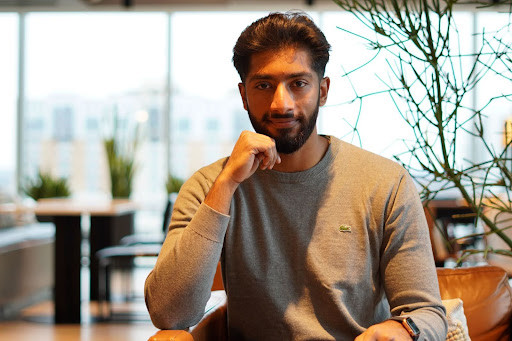
In an era when a college degree is no longer a golden ticket, thousands of computer science graduates are discovering the brutal truth: a diploma doesn't guarantee a job; it just gets you in line. For the 600,000 students studying computer science at any given time across the U.S., the dream they were sold, that tech is a guaranteed path to wealth and job security, is often met with frustration, rejection, and underemployment.
One 23-year-old, however, is turning that disillusionment into action. Aman Manazir, a software engineer, YouTuber, and career coach, is building a movement to help his peers break through the noise, secure elite internships, and land six-figure roles at some of the world's biggest tech companies. He's not just navigating the system; he's teaching others how to beat it. "Once upon a time, education opened doors. Now, it puts you in a queue of over 2.4 million people who are already in the workforce, along with the 600,000 trying to get through this same process," Manazir says. "That's the reality I saw and lived."
While most of his peers were out partying, Manazir was alone in his room, editing videos on how he landed an internship. There was no glamor, no hype, and certainly no money. Just a teenager with a camera, an obsession with self-improvement, and a vision far bigger than a resume.
"I was recording, editing, and coaching when I had no proof it would work. For the first few years, I didn't make a cent. I was actually losing money," he recalls. "But I had this dream that it could become something bigger than myself."
That dream has turned into reality. Today, through his coaching company, Manazir runs the Software Engineering Accelerator, a program helping students and young professionals across the country transform their degrees into careers. Hundreds of his students have landed jobs at top-tier tech firms. And it all started with one simple idea: If I could do it, others can too.
Manazir's journey began in Wisconsin, where he majored in computer science. Like many, he chose the major because it seemed promising, with its portrayal of high salaries with high demands. But everything changed in his freshman year when COVID-19 hit, sending students home and grinding the world to a halt. "I had time, no social life, and a lot of drive," he says. When everyone else was binge-watching shows, this relentless person was learning how to get hired.
He did what most first-year students can't; he landed a paid software engineering internship. It wasn't at a tech giant, but it was enough to light a spark. The next year, a bigger internship. The following year, an offer came from one of the top global tech giants. Manazir shares an unexpected incident: "At this e-commerce company, someone literally walked up to me and said, 'I watched your video six months ago. I followed your advice. I'm here because of you.' That changed everything."
That initial success launched Manazir into coaching. At first, it was one student. Then a few more. When those students started landing life-changing jobs, he knew he had something real. But one man couldn't coach hundreds of students. So he built a team.
Today, his accelerator is powered by a team of expert coaches, recruiters, and engineers from the very companies his students dream of working for. And they're not theorizing. They're in the trenches, helping students crack the real hiring processes. "Personally, I coach people of my age as well as those older than me. Both the age groups understand the value of real-time experiences that I've had," he shares. And that is the reason why his message resonates.
Manazir is honest about the gap in today's education system. "Universities give you technical knowledge," he says, "but they don't teach you how to get hired. They don't teach you how to write a world-class resume, network, or handle interviews. I realized I could fill that gap."
And he filled it with his six-step process, separated by two core goals: get the interview and pass the interview. To get the interview, students work on a world-class resume tailored for tech recruiters, an optimized LinkedIn profile that attracts hiring managers, and strategic networking and referrals. On the other hand, to pass the interview, they train on technical coding assessments, live coding interviews, and behavioral and soft-skill sessions.
Manazir's work doesn't just help students; it helps companies too. In a competitive hiring landscape, where good candidates often slip through the cracks, he helps bridge the gap. "These companies aren't rejecting people because they're not good enough. They're rejecting people who don't know how to show they're good enough," he says. "We fix that and it's a win-win situation for all," Manazir says. "Students are overjoyed, companies get better hires, and we get to build a business that changes lives."
What makes Manazir's story remarkable isn't just the outcome; it's the grit. That is because he knows what it's like to have a dream internship rescinded. He's faced the fear of graduation without a job. And he's come out stronger, turning personal pain into scalable solutions. His ultimate goal is to help software engineers become employable in today's world, flooded with degrees and devoid of direction.
And he is just getting started.







